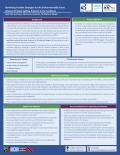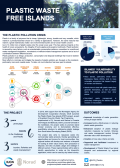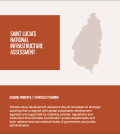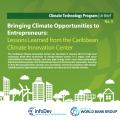
This case study provides insight into creating effective manuals for environmentally sound management of mercury waste in Small Island Developing States.

Most efforts to minimize and mitigate the impacts of plastic pollution are focused on the mainland, particularly rivers and coastal areas. To date, not much attention has been paid to islands.
This factsheet highlights IUCN's Plastic Waste Free Islands (PWFI) project - part of its global Close the Plastic Tap Programme -...

This case study discusses the effects of mercury in the Caribbean and gives recommendations to decreasing the negative impact.

This case study illustrates Guiding Principle 1: Strategic Planning and is part of a series of ten case studies which aim to inform the forthcoming wave of global infrastructure investment. Collectively, they specify and demonstrate how environmental, social and economic sustainability must be integrated right across infrastructure policymaking at the systems-level. The individual principles and case studies were developed via ongoing global consultation and inputs from experts and UN Member States, as part of implementation of the UN Environment Assembly (UNEA) Resolution 4/5 on Sustainable Infrastructure.

Tourism brings economic development as well as cultural and social benefits, but its growth has also significantly increased greenhouse gas (GHG) emissions, pressure on energy and water resources, and the creation of waste. This poses a threat to the environment and to Saint Lucia as a viable and desirable tourism product. This action plan is for policymakers, destination planners and managers, and private sector industry stakeholders. It explains how to make the accommodation value chain more sustainable, reducing the negative impacts of tourism, such as marine pollution and environmental degradation, and its high demands on natural resources.
Climate Change Impacts on Coastal Transport Infrastructure in the Caribbean - Saint Lucia Case Study
This case study presents the assessment of the criticality of Saint Lucia’s major transportation assets (airports and seaports) and their potential vulnerabilities to climate variability and change.
These case studies demonstrate how corporate buyers have effectively embedded sustainability in their procurement processes to improve resource efficiency and reduce GHG emissions.

The Climate Technology Program Brief: Bringing Climate Opportunities to Entrepreneurs - Lessons Learned from the Caribbean Climate Innovation Center draws lessons from the center’s operation, focusing on how the idea generation sessions were essential to seed local companies with climate related business opportunities and introduce new ideas to local climate markets.
